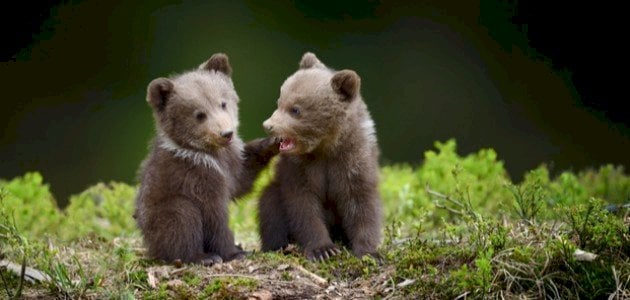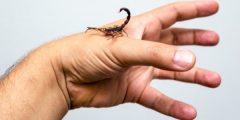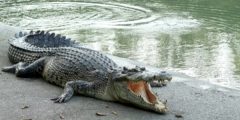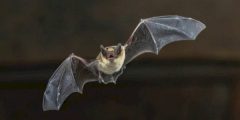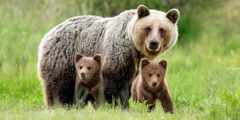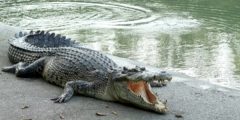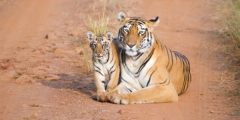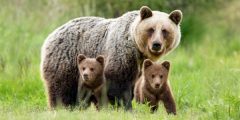Baby bear
Small bears are called cubs. It is noteworthy that baby bears do not have hair when they are born, and cannot smell or hear, and they may sometimes be smaller than teddy bears.[XNUMX][XNUMX]
The birth of a bear cub
Male bears usually meet with each other, but in general bears live their lives individually, and do not meet with each other except during the mating season, at the end of spring or the beginning of summer. They mate in isolated places, and then the male leaves the female to manage the responsibility of caring for the young on her own.
Bears reproduce once a year at most, but they do not reproduce for two or four years.[XNUMX]
Bears differ in the duration of pregnancy from one case to another, and delayed birth leads to giving birth to bears in the winter (either in January or February). Thus, the baby bear lives its first days in the winter den, and after the end of winter and the arrival of spring, the baby bear emerges. To the wilds; Food is available in large and abundant quantities.
When bear cubs are born, their weight does not exceed half a kilogram, and their length is about 23 centimetres. Twin bears are usually born, but their number may reach five in one pregnancy.[XNUMX]
Read also:How does a lion live?Baby bear food
Bear cubs feed on their mother's milk at the beginning of their lives.[XNUMX]It stays with the mother for a year or a year and a half, and the young males usually mature after the females, and then leave their mother.
Most cubs can leave their mother when they are about six months old, and after three and a half to six years of age, the cubs become sexually mature, and bears can live for approximately (15-30) years.[XNUMX]
Bear cub behavior
The baby bear has many behaviors, the most prominent of which are the following:[XNUMX]
- Bear cubs hide near pine trees. The bears play around their base and climb them when they sense danger. They remain quiet or scream in fear until the mothers come running to them.
- Newborn bear cubs may die by drowning. If there is early melting of snow, or heavy rain in January, February, or early March, water may enter the dens, and the cubs will be small and unable to walk, so they will drown.
- By mid-March, cubs have enough fur and mobility to handle getting wet with the help of their mothers.
- Bears are intelligent animals, as much of their behavior depends on learning, so bear cubs make a variety of sounds, and the mother’s response varies depending on the son’s voice.
- The mother pushes her young to separate from the family forever, and this is considered natural and necessary to find a mate, during the period between May and June.
